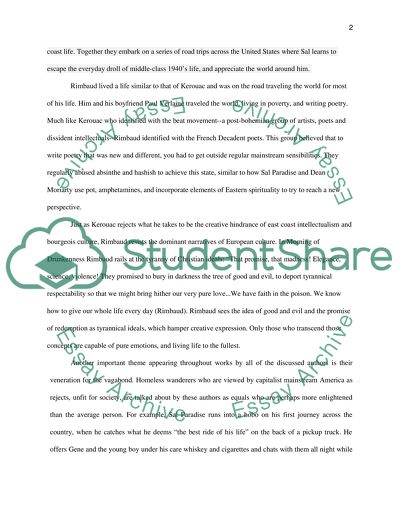Cite this document
(“Kerouac, Rimbaud, Blake and Whitman: A Rejection of Pre-Modern Ideals Essay”, n.d.)
Retrieved from https://studentshare.org/literature/1438992-kerouac-rimbaud-blake-and-whitman-a-rejection-of-pre-modern-ideals
Retrieved from https://studentshare.org/literature/1438992-kerouac-rimbaud-blake-and-whitman-a-rejection-of-pre-modern-ideals
(Kerouac, Rimbaud, Blake and Whitman: A Rejection of Pre-Modern Ideals Essay)
https://studentshare.org/literature/1438992-kerouac-rimbaud-blake-and-whitman-a-rejection-of-pre-modern-ideals.
https://studentshare.org/literature/1438992-kerouac-rimbaud-blake-and-whitman-a-rejection-of-pre-modern-ideals.
“Kerouac, Rimbaud, Blake and Whitman: A Rejection of Pre-Modern Ideals Essay”, n.d. https://studentshare.org/literature/1438992-kerouac-rimbaud-blake-and-whitman-a-rejection-of-pre-modern-ideals.


